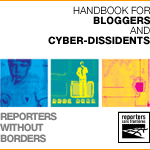Bottled water as an Environmental problem
Posted by 4kilo on April 29, 2007
”Bottled water” according to IBWA code of practice, means water that is intended for human consumption and that is sealed in bottles or other containers with no added ingredients except that it may optionally contain safe and suitable antimicrobial agents.It is newly growing business in Ethiopia.People barely knew other than Ambo mineral water before the 1990’s.The success of Highland natural spring water was easily noticed by other investors and now different other brands are available in the market. The introduction of bottled water into market and success in the local market is a good news to Ethiopia only if it is utilized in accordance with principles of sustainable utilization of resources.
The demand for bottled water is likely to rise significantly and export to neighboring countries even to middle east and beyond is an increasingly growing possibility.Water has become increasingly a scarce resource which has to be utilized carefully keeping the water balance or hydrological cycle.Catchment re-charge during rainy season,annual production and total natural water reserve in the area has to be balanced to avoid depletion and pollution.Investor’s in this sector should play major role in making sure the water source is protected and the production is in accordance with catchment yield.They are also expected to sponsor,motivate and even organize different environment clubs and create public awareness in this regard.This also includes how to dispose used plastic bottles.
Bottled water has advantage over tap water as it encourages saving and is clean or at least easy to keep it clean and off course it is easy to handle and manage.But this advantage has come at cost of environment.I hope business in Ethiopia will play significant role in addressing the environmental issues which apparently is becoming and ever growing treat to our environment.Here is an interesting article from ‘oneworld.net’ titled ” Bottled Water: A Global Environmental Problem”
Consumers spend a collective $100 billion every year on bottled water in the belief—often mistaken—that it is better for us than what flows from our taps. Worldwide, bottled water consumption surged to 41 billion gallons in 2004, up 57 percent since 1999.
“Even in areas where tap water is safe to drink, demand for bottled water is increasing—producing unnecessary garbage and consuming vast quantities of energy,” reports Earth Policy Institute researcher Emily Arnold. Although in much of the world, including Europe and the U.S., more regulations govern the quality of tap water than bottled water, bottled water can cost up to 10,000 times more. At up to $10 per gallon, bottled water costs more than gasoline in the United States.
“There is no question that clean, affordable drinking water is essential to the health of our global community,” Arnold asserts, “But bottled water is not the answer in the developed world, nor does it solve problems for the 1.1 billion people who lack a secure water supply. Improving and expanding existing water treatment and sanitation systems is more likely to provide safe and sustainable sources of water over the long term.” Members of the United Nations have agreed to halve the proportion of people who lack reliable and lasting access to safe drinking water by the year 2015. To meet this goal, they would have to double the $15 billion spent every year on water supply and sanitation. While this amount may seem large, it pales in comparison to the estimated $100 billion spent each year on bottled water.
Tap water comes to us through an energy-efficient infrastructure whereas bottled water is transported long distances—often across national borders—by boat, train, airplane, and truck. This involves burning massive quantities of fossil fuels.
For example, in 2004 alone a Helsinki company shipped 1.4 million bottles of Finnish tap water 2,700 miles to Saudi Arabia. And although 94 percent of the bottled water sold in the U.S. is produced domestically, many Americans import water shipped some 9,000 kilometers from Fiji and other faraway places to satisfy demand for what Arnold terms “chic and exotic bottled water.”
More fossil fuels are used in packaging the water. Most water bottles are made with polyethylene terephthalate, a plastic derived from crude oil. “Making bottles to meet Americans’ demand alone requires more than 1.5 million barrels of oil annually, enough to fuel some 100,000 U.S. cars for a year,” Arnold notes.
Once it has been emptied, the bottle must be dumped. According to the Container Recycling Institute, 86 percent of plastic water bottles used in the United States become garbage or litter. Incinerating used bottles produces toxic byproducts such as chlorine gas and ash containing heavy metals tied to a host of human and animal health problems. Buried water bottles can take up to 1,000 years to biodegrade.
Worldwide, some 2.7 million tons of plastic are used to bottle water each year. Of the bottles deposited for recycling in 2004, the U.S. exported roughly 40 percent to destinations as far away as China, requiring yet more fossil fuel.
Meanwhile, communities where the water originates risk their sources running dry. More than fifty Indian villages have complained of water shortages after bottlers began extracting water for sale under the Coca-Cola Corporation’s Dasani label. Similar problems have been reported in Texas and in the Great Lakes region of North America, where farmers, fishers, and others who depend on water for their livelihoods are suffering from concentrated water extraction as water tables drop quickly.
While Americans consume the most bottled water per capita, some of the fastest collective growth in consumption is in the giant populations of Mexico, India, and China. As a whole, India’s consumption of bottled water increased threefold from 1999 to 2004, while China’s more than doubled.
While private companies’ profits rise from selling bottled water of questionable quality at more than $100 billion per year—more efficiently regulated, waste-free municipal systems could be implemented for distribution of safe drinking water for all the peoples of the world—at a small fraction of the price.























Yemi said
Hey there. What a great discovery. I have not read you until today and I am glad I did. Great blog. I am going to link you on mine:)
Oh and ditto on this article!
4kilo said
thank you Yemi!i liked your blog and of course your lovely son!
Make Money Net said
your Blogger Client Os X
your Blogger Client Os X
your Blogger Client Os XIf you have no web host as yet, and are seeking one from which to operate your blog, then make sure that your host offers MySQL. Larger businesses may opt to hire a several respective writers with certai…
Pirsey said
This topic is quite hot on the Internet right now. What do you pay attention to while choosing what to write ?